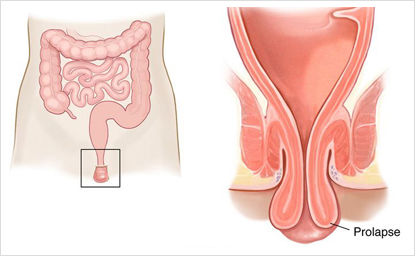
Rectal Polyps Treatment in Nagpur
Junankar Hospital provides the best rectal polyps treatment in Nagpur. Dr. Nilesh Junankar is the best surgeon for rectal polyps treatment in Nagpur known to perform non-surgical treatment for rectal polyps. Junankar Hospital Nagpur is famous for laser treatments and conventional treatments. Patients are really satisfied with the painless treatment for pilonidal sinus.
What is Rectal Polyps?
Any lump or Polyps formation on the surface of the skin causes enormous distress and pain to the patient who suffers from the same. Polyps which are extra growth that appears in the colon of the Rectum area is one such formation that makes people suffer from pain and various kinds of discharges. Rectal polyps is one such area that needs clear understanding so handling the same becomes more accessible for people suffering from the same.
Types of Rectal Polyps
There are many kinds of Polyps depending on their size and nature. Some types of polyps are enlisted below for better understanding of the same.
Malignant Polyps – This type of Polyps are destructive. They are the ones examined by the Medical Professionals for the prevalence of cancer cells in the body or part of the body.
Hyperplastic Polyps – This type of Polyps are just additional growth and remain harmless. They are not capable of developing into cancer
Adenomatous Polyps – This is the typical type of Polyps found in people. They are safe for most people. However, it is this type of Polyps which develop into Colon Cancer in many
Symptoms of Rectal Polyps
Polyps do not show out any signs. However, Rectal Polyps can sometimes show symptoms. Some possible symptoms that show out the presence of Rectal Polyps are given below for the benefit of people who may have the same.
- Blood discharge in the tissue used for cleaning the private parts
- Constipation for a more extended period like a week
- Vomiting sensation when the Polyps grow in size
- Stools streaked with blood
- Pain in the individual sections
- Consistent Diarrhea
- Nausea
Who is at Risk for Rectal Polyps?
There are specific categories of people who stand the high risk of getting affected by Rectal Polyps. Some such classes of people are
- People who have suffered from different types of cancers in particular Uterine or Ovarian cancers before the age of 50
- People suffering from hereditary disorders like Gardner’s Syndrome or Lynch Syndrome
- People suffering from inflammatory conditions like Ulcerative Colitis or Crohn’s Disease
- People who have taken treatment for Polyps earlier during their lifetime
- People who have Type 2 Diabetes that is uncontrollable
- People who genetically inherit Colon Cancer or Polyps
- People who have crossed 50 years of age
- People who are obese or overweight
The above is just an indicative list, and there may be more reasons for people to get affected by Rectal Prolapse. Check for the same with a qualified Medical Professional who may be able to guide you through the complete disease called Rectal Polyp treatment and its various aspects.
Available Treatments of Rectal Polyps
Non-surgical treatments
- A gentle digital pressure is helpful in reducing prolapsed rectum
- Several procedures involve sedation with local anesthetic agents and a sprinkling of either salt or sugar to decrease the edema and to reduce the prolapse
- Internal prolapse treated medically by using bulking agents, stool softeners, and suppositories or enemas
Surgical treatments
The principal aim of the surgical procedure is to correct a prolapsed rectum to attach or secure the rectum to the back side portion of the inner pelvis.
Surgery through the abdomen
- Typically performed in younger or healthier patients
- Type of abdominal surgery usually determined by severity of associated constipation
- Associated with higher morbidity rate than perineal approach but lower recurrence rate of prolapse
- Performed under general anesthesia
- Often involves a hospital stay of 3-7 days
Perineal approach
- Typically performed in old people in poor health
- Applicable to those patients who cannot tolerate general anesthesia
- Associated with higher recurrence rate than abdominal approach
- Usually, involves a shorter hospital stay
- If a patient is too weak for surgery, a doctor can prevent a prolapse by inserting a wire or plastic loop to hold the sphincter closed.
Pre-Surgery and Post-Surgery Instructions
- Avoid or decrease straining during a bowel movement
- Eat a lot of fruits and vegetables that are rich in fiber
- Use the stool softener that prevents straining during bowel movements
- Perform pelvic floor exercises
- Take a shower with antiseptic soap to avoid bacterial infection
- Stay away from specific medicines
- Use comfort clothes


